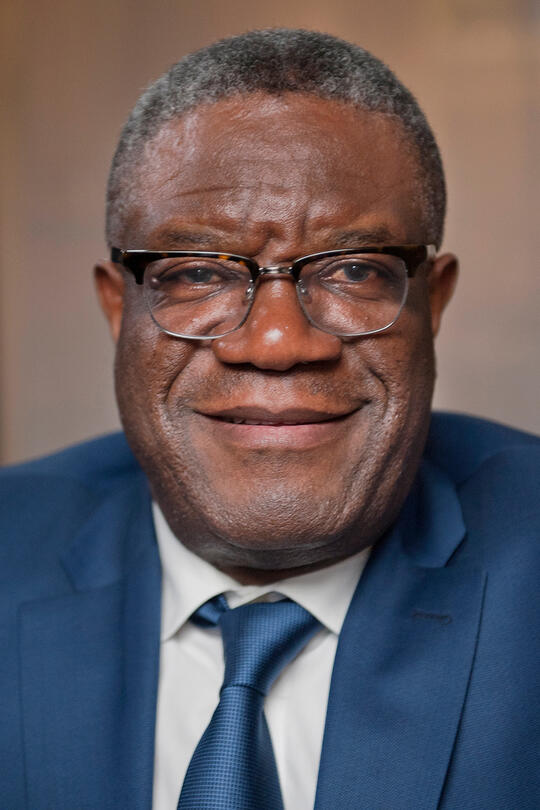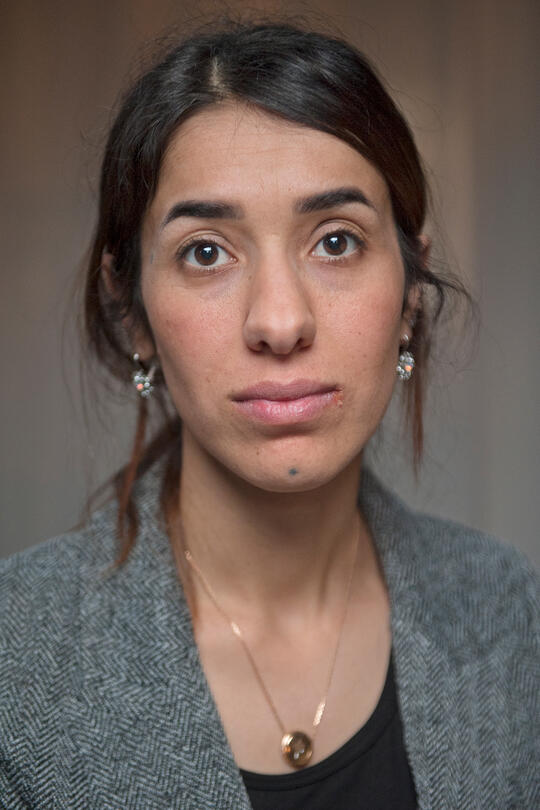2018
Denis Mukwege
Nadia Murad
for their efforts to end the use of sexual violence as a weapon of war and armed conflict

Denis Mukwege (1955 -)
Democratic Republic of the Congo
Helping to combat sexual violence
Denis Mukwege grew up in the town of Bukavu in the eastern part of the Democratic Republic of Congo (DRC). He trained as a doctor and became a gynecologist after studying in France. In 2008, he established Panzi Hospital in Bukavu, where he and his staff have treated the injuries of thousands of women victims of sexual violence. Many millions of people have been killed, abused and forced to flee in the civil wars that have ravaged the DRC since the 1990s. The fighting largely concerns control of the DRC’S important raw materials. Both government forces and rebel groups have used the rape of women as a weapon to humiliate and weaken their opponents. Mukwege has become one of the world’s leading experts on the treatment of internal injuries suffered by women subjected to gang rape. He has carried out countless operations, working long days of up to 18 hours. Typically, he was in the operating room when he was told that he had been awarded the Nobel Peace Prize. Mukwege’s work is dangerous. In 2012, he and his family survived an assassination attempt, and his life has been threatened by groups bent on preventing him from publicly condemning the atrocities. Despite these threats, Mukwege has continued to criticise the DRC’s government and the international community for not doing enough to prosecute the perpetrators of such war crimes.
Nadia Murad (1993 -)
Iraq